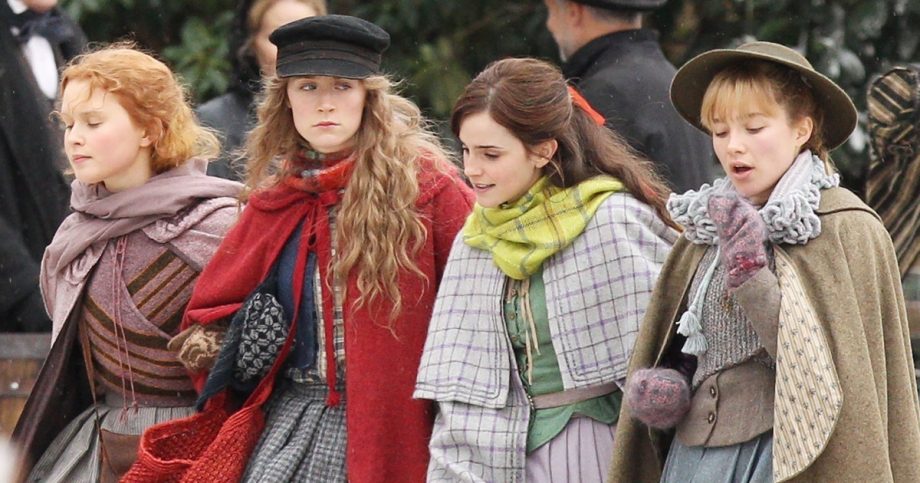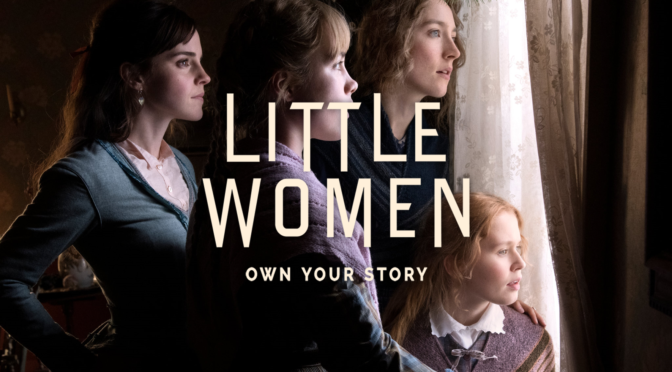The seventh adaptation of the beloved book, Little Women, directed by Greta Gerwig (Lady Bird), is the story of the four daughters of the March household, Jo (Saoirse Ronan; Brooklyn), Meg (Emma Watson; Harry Potter), Amy (Florence Pugh; Lady Macbeth), and Beth (Eliza Scanlen; Sharp Objects). Set during the civil war, each of the girls has their own ambitions, lives, and loves as they learn to become adults together.
Gerwig is able to create the warmth and care of a loving family. The young women are close in age and know each other incredibly well. The argue, tease, and tussle, but the depth of their genuine affection is clear. Even when they are petty, it’s impossible to overlook how much they love each other. They have all the inside jokes and goofy banter of people who have spent their lives together. Their closeness is also shown in their physicality. They walk arm-in-arm and seem to always be on top of each other. When they gather to hear a letter from their father, they sit closely together, locked in a familiar mutual embrace. The ease and comfort they feel around each other is palpable and it makes their bonds of sisterhood immediately believable.

The film repeatedly points out the gender inequality of the time. The girls, Jo in particular, all seem limited by the opportunities available and the expectations of social norms. They want to be independent, but there are precious few ways for women to support themselves. Furthermore, the idea of an independent women is itself controversial. While Gerwig is direct with this message, it isn’t excessive or detrimental to the narrative. The limitations are encountered naturally and, sadly, often feel more relevant to the modern world than we would like. Meryl Streep (The Devil Wears Prada) appears as the unmarried elderly aunt that attempts to conform their behaviors to society. Her acting feels artificial, as usual, but she serves to demonstrate how different the leads are from most women of their time. All the March girls are strong female characters, but Gerwig deserves special praise for allowing each to be strong in their own way. Too often media will prescribe a single notion of what a Strong Female CharacterTM means to the exclusion of many. The girls here have different desires from fame to companionship to motherhood and each is presented with equal care and respect.
In her second outing as director, Gerwig has once again proven herself a formidable talent. She deftly controls the large cast of characters, often in scenes featuring dozens of performers, and does so while still giving each lead their own personality and enough opportunity to develop. She is a sensitive and empathetic director with affection towards all her characters. They are all imperfect, but flaws are not judged, only accepted as part of being human. Even when characters act impulsively or selfishly, they are still eminently lovable. Gerwig has created a warm, empathetic adaption of a classic story with themes and messages that still resonate today.

4/5 stars.
